Erin King is a best-selling author, 3x entrepreneur and the CEO of the Socialite Agency.
7 Big Ideas From This Interview:
- Authenticity versus manufactured vulnerability in speaking/storytelling
- Energy management over time management for success
- Being yourself while maintaining professional credibility
- Sharing healed scars rather than open wounds
- Breaking free from people-pleasing and “good girl” behaviors
- Standing out through differentiation rather than perfection
- Balancing personal stories with universal audience takeaways
The Power of Being Unapologetically Yourself
In a world obsessed with carefully curated social media presence and performative vulnerability, true authenticity stands out. As discussed in this insightful conversation between Mike Ganino and Erin King, author of “You're Kind of a Big Deal,” the key to making a lasting impact isn't about manufacturing moments or engineering sympathy – it's about having the audacity to be genuinely yourself.
Energy Management Over Time Management
While many focus on time management systems and organizational tools, King introduces a powerful alternative perspective: energy management. Rather than getting caught up in complex scheduling systems, she advocates for identifying and eliminating energy drains that prevent us from showing up as our best selves. A prime example is her decision to wear the same color dress for speaking engagements, removing the mental burden of wardrobe decisions and redirecting that energy toward more meaningful preparation.
The Evolution of Leadership Presence
The conversation highlights how audience expectations have shifted. People are no longer looking for the traditional “sage on the stage” but rather seek authentic “guides on the side.” This evolution demands a new approach to leadership and public speaking – one that values genuine connection over manufactured authority. King emphasizes that trust is built not through impressive credentials or carefully crafted personas, but through honest, relatable communication.
Sharing Scars, Not Wounds
One of the most valuable insights shared is the distinction between sharing scars versus wounds. When speaking or leading, it's crucial to share experiences that you've processed and learned from (scars) rather than raw, unprocessed experiences (wounds). This approach ensures that your vulnerability serves a purpose beyond self-expression, offering genuine value and insights to your audience.
The Myth of “Just Be Yourself”
While “just be yourself” is common advice, both Ganino and King acknowledge its complexity. True authenticity requires more than simply showing up – it demands intentional work, self-reflection, and the courage to challenge societal expectations. King shares personal examples from her childhood, illustrating how societal pressures and family expectations can create layers that need to be consciously shed to reveal one's authentic self.
Building Sustainable Big Deal Energy
The conversation emphasizes that maintaining “big deal energy” isn't about constant performance or achievement. Instead, it's about finding your center of gravity and operating from that place consistently. This approach allows for growth and ambition while remaining true to your core identity, making it sustainable long-term.
The Bottom Line
The key takeaway is that becoming “kind of a big deal” isn't about manufacturing an impressive persona or following a prescribed formula. It's about having the audacity to show up as yourself, managing your energy effectively, and caring more about your own truth than others' expectations. As King puts it, “Everyone has big deal energy. Everyone has audacity. It's just whether or not you choose to have the balls to unlock it.”
This refreshing perspective on leadership and authenticity offers a roadmap for anyone looking to make a genuine impact while remaining true to themselves. It's not about not caring what others think – it's about caring more about what you think when it matters most.
“The people that make me stop my scroll and think differently and pivot my behaviors and change my perception — all have one in one thing in common: they aren't afraid to be human.”
Mike Ganino [00:00:00]:
One of the things that I cannot take my eyes away from, which I think is probably our goal when we get on stage or on screen somewhere, is to become the person that the audience can't stop staring at, listening to, like, can't take their eyes away. And one of the things that I'm really drawn to are people who seem like they're just so damn themselves in front of other people. I think that's like a gift, not only to ourselves, but to other people. That's what the mic drop moment is all about, is saying your truth while also spreading some truth to the people in the audience. It's how mic drop moments happen. People are standing up in their truth or or on camera or wherever the case is and saying something that, like, is true, and the audience feels it as well. It's not about, like, a zinger or, like, woah, I just told a great joke. It's about, like, some deep truth telling, and some of that is about who we are.
Mike Ganino [00:00:54]:
So much of our our message is not just the the words that we put into place or the perfect slide. Actually, most of our message is not that. In fact, our voice, an upcoming episode, I'm gonna explore The. Our voice isn't even the words we say. We often say, I need to find my voice, meaning I need to find the words to say. But the reality is your voice, as I'm learning from my infant daughter, is actually the sound you make, the feelings you make. We're gonna explain that on another episode. On this episode, I am talking to my good friend, one of my best friends.
Mike Ganino [00:01:27]:
I feel like I say my good friend, but this is one of my closest friends, Erin King. She's the author of the brand new book, You're Kind of a Big Deal, level up by unlocking your audacity. And you better know that I've been reading this one to my, to my little daughter, Viviana, because I think, I think she's a big deal. And I think you're a big deal. And I think we're all a big deal. And so does Erin King, by the way. She's a best selling author, a 3 time entrepreneur, CEO of The Socialite Agency and she's helped Moment. I mean, this alone is just so cool.
Mike Ganino [00:01:56]:
Like The Academy Awards to the United States Navy, the Pentagon. She's been teaching them her pub method. It's an award winning way to think about digital persuasion, which is also the name of her first book, Digital Persuasion. And her new book, You're Kind of a Big Deal, is out everywhere. You should go grab copies. This new book, You're Kind of a Big Deal, Level Up by Unlocking Your Audacity, is a really great summer read, actually. So it's great that it's coming out, the kickoff of summer, because you feel like you're on this journey with your best friend. Erin has a way of kind of making everyone feel like they're her best friend.
Mike Ganino [00:02:31]:
You feel like you're on a journey with them, but also Mike there's just all this Mike great personal development self help go get some stuff done. And not in like a hokey way. I mean, the titles of the chapters are funny. Right? Tell you what you want, what you really, really want. Face your fake news fears. Ghost your inner good girl. Become a bad listener. Feel jealous.
Mike Ganino [00:02:52]:
Find genius. These are all Mike of The names of these chapters. I got to read an early edition, way back when she was first creating it, and it is a great book. But on this episode of the show, we are talking about being yourself on stage, about being a big deal in front of other people, and how Erin found that through speaking and storytelling. And I think you're gonna you're gonna find some really great gems here to, to go out and shine as a big deal yourself. So let's get into it.
Erin King [00:03:22]:
So you have a story to tell and you wonder how to own the stage and give that killer speech that will captivate the masses. You don't just Ganino speak to The. You want to transform your audience. Welcome to the Mike drop moment. Bold conversations about public speaking, storytelling, and business that give you real world valuable takeaways so you can craft a speech, a story, a business, and a life that the world can't stop talking about. It's time to find your mic drop moment. Here is your host, Mike The.
Mike Ganino [00:03:54]:
The first thing I have to ask you about for anybody who listens to the show, who's like, Mike. This is the show about, you know, getting on stage and having your mic drop moment and saying the thing you wanna say. My first question to you, Aaron King, is how did you get the audacity to be a Moment, a a beautiful woman who does the makeup, the glam, the everything on stage, who stands on stage? Where does this audacity come from to stand on stage and show not only a picture of you doing, like, Irish river dancing, but also a picture of you in a mullet? Like, where does it come from that you think, you know what? Because I think a lot of people are scared to show those truthful parts of The. And and I think for you, it's one of the reason that audiences, huge audiences love you and are obsessed with you. So where did that come from The you said, you know what? I'm just gonna stick a picture of me and a mullet up here because I don't know a lot of people who'd be brave enough.
Speaker C [00:04:50]:
Well, just to be clear, just wanna clarify. It's actually a per mullet, which is different than a regular mullet. The per mullet is the combination of both perm and mullet kinda coming together. So it's just I don't mean to, you know, brag, but it's even better than a mullet. Yeah. I mean, I think that when you are when you're on stage and you're meeting a room full of people for the first time, think of how you feel when you walk into the old days to a dinner party or a cocktail hour. It can be a little bit scary to to say, hey. This is who I am.
Speaker C [00:05:24]:
Nice to meet you. Knowing that everyone is kinda judging you and and kinda trying to figure out who you are as fast as possible using clues about how you look and how you sound that maybe even had nothing to do with who you are, but it's just how we evaluate each other, right, as humans. And so I think stepping on stage is is the awkward cocktail party sweat times 800,000, as you know, Mike. And so one of the things that you've taught me in working with you, over the years is just how important it is to find common ground. Whether you're presenting on stage or you're in a cocktail party or you're on the Internet, I mean, people are Ganino gravitate towards you if they feel like they've been there. And there is nothing that we've all been able to connect, to more than a horrendous haircut. So that's kinda where it stemmed from.
Mike Ganino [00:06:13]:
And I love I love that The the per mullet, which I think is probably worse than a mullet. Right? It's Mike it's it's the apex of a mullet shaping.
Speaker C [00:06:22]:
Absolutely. I think so. So the Absolutely.
Mike Ganino [00:06:25]:
I love that not only does it get weaved in there, but you use it also you bring in, talking about your mom and talking about kind of setting your mom on on, on FaceTime and just kind of setting her down next to you while you're doing a million things. And you make this joke about, like, she deserved it because of that haircut. Like, this I don't feel any guilt at all. And I think that it's a really interesting thing that you do that throughout your your keynote, you weave in these things about your life, things like that that people can relate to. That someone in the audience is like, oh my gosh. I have that mother. I have that mother-in-law. I have that best friend.
Mike Ganino [00:07:04]:
I mean, I know that. I have a friend who, like, I will only call her when I'm driving, because then I can just put the phone in the cradle in the car and just drive through the LA traffic, and she'll just talk the whole time. And it's Mike Chloe just needs to talk for an hour. Yes. And she doesn't care as long as every once in a while I say, oh, mhmm. Yeah. And there's something so relatable about that, and yet, you're not a fluff speaker. You're not someone who's going to conferences and just talking about, like, you know, your life and, like, what's up? Like, all of this is related to business.
Mike Ganino [00:07:35]:
So what? How did that come about where you said, actually, there are these places where the things that I've the things in my life, like this this story of the mullet or the story of the river dancing, The things are relatable to this topic for this audience and and I can make sense of that. How did you kind of, like, weave that together that that made sense?
Speaker C [00:07:56]:
Well, one of the things again, not to be, you know, making you think that you're even cooler than you already are, Mike, but I have learned so much from you and your storytelling prowess. And one of the things you taught me when we had that first afternoon together, here in Newport where we first fell in love, you taught me that all the stories that we have in our lives, whether it's bad haircuts or super random hobbies, like hopping around like a loony little leprechaun for most of our childhood, which resulted in massive calves that do not do well with a lot of the styles of shoes and footwear these days. But you taught me that in each of those stories, there can be multiple takeaway proverbs. There can be multiple ways to land that plane in a way that not only the audience sees themselves, but that they're able to walk away and say, alright. Yeah. I get that. Like, for my Irish dancing story, you know, I talk about how I went to the World Irish Dancing Championships. And when I went there, I came in dead last.
Speaker C [00:08:57]:
So I'm the worst in the world for my category in that moment, with Irish dancing and being 15 years old in the already very confidence boosting environment of a high school, an all girls high school. I literally came Moment, like, going from the highest high of representing the United States of America to being, you know, in my mind, a loser. And all of a sudden, there's this really interesting dichotomy of you can be a big fish in a smaller pond. You can be at the teeniest, saddest fish in a massive pond. But it was this really interesting world opening, literally, view that the world's such a big place and that it's an unwinnable game to always try to compete or be the best because it just goes on and on and on. There's always a bigger boat. There's always a better dancer. There's always one prettier, richer, skinnier, smarter.
Speaker C [00:09:42]:
And so it was kind of this really weird, understanding that I I got. And so when I share that with the audience, we map it back to digital communication, which is a place where we are constantly comparing ourselves to everyone's highlight reel in our news feed and and and saying, oh, I am more successful than that person, but I'm chasing down this person. Or, that person's more, you know, beautiful or funnier, but, you know, this person we're always trying to find our pecking order and find our hierarchy. And and I think that story, of being the worst in the world at something, everyone can remember a time where they realize that that it's an unwinnable game, and so they can free themselves from the emotional anguish and mental torture that can come with unintentional social media scrolling.
Mike Ganino [00:10:29]:
Yeah. There's there's there's something about your not just your talk. I mean, it is really like for me, I talk about this this idea of somebody having a through line and the through line, is it like the through line of this speech, the through line of this book, the through line of this movie for for people like you and I, the through line is kind of like, what am I kind of always about? Like Mhmm. Regardless of where you see Mike. If you see me on Clubhouse, which you, by the way, are, like, the the star of Clubhouse, Oprah Winfrey, doing your daily show over there with legions of fans following you. So everyone go check out Erin on Clubhouse if you wanna see how to be dynamic on audio because she obviously, she's dynamic on stage. She's booked so often, but also dynamic on audio, but also dynamic on Instagram, dynamic on the page. I got to read some little early snippets of your next book that's coming out.
Mike Ganino [00:11:25]:
You're kind of a big deal, how to level up by unlocking the audacity, June 1st, everybody, by the way. I'll plug it. Aaron doesn't have to. There's something in your through line that is so clear in everything you do around that that none of it feels manipulative. For example, I think there are people who would get on stages and they would tell the, like, heartbreak story in order to manipulate the audience. And it feels to me that your through line through everything, through your your your book, DiVita persuasion, through your keynote, through is about finding these connection points and using your stories to do that instead of using them to manipulate the audience into buying the next thing. Does that feel right?
Speaker C [00:12:09]:
Mhmm. And what you're bringing up, Mike, is so interesting. Speaking of Clubhouse, we had a really, really rich dialogue around this topic, and we coined it digital catfishing, which is this phenomenon that I don't know if you've observed this in your own newsfeed, but there is this there is this, it became trendy. It became sort of a the popular thing for people to be crying on TikTok and being vulnerable and peeling back the layers to the point of TMI oversharing mayhem that we find ourselves in now, in my opinion. And so what's interesting is the whole conversation was, like, what do you do if there are people in your life you love offline and then you see them online? And what they're doing is it feels like engineered sympathy grabbing or it feels like manufactured moments in order to manipulate or intentionally elicit some kind of emotional response. And and the conversation was fascinating, Mike. Mike I know you've seen this in your news feed. And what we ultimately settled on was just that 2 things.
Speaker C [00:13:12]:
1, audiences are so well, we we are the audience. We are all smarter than we look. I mean, we can smell fake a mile away. And so however however tempting it can be, whether so for us as speakers, Mike, you know, we all I for me at least, I've seen certain speakers on stage, you included, and I walk away and, yes, I have the incredible talking points, but then there's a part of me who's like, gosh. If only I could be as polished as Mike or if only I could be as as witty as this person or as physical as that person or you know, you you take these attributes that you admire and you start to think, what if I could channel The? Or, you know, we say we're being inspired by them, but, really, we're kind of copying them. Right? And and it's so funny because every single time that you try that, whether you're trying that at work or you're trying The on social media, you're trying to channel someone else or or manufacture a certain response or an emotional, feedback loop from your audience, 10 out of 10 times, it falls flat. Because people can feel it's not coming from a place of being genuine and coming from a place of of really this the fear that does transpire when you are actually being genuine. So the second thing we talked about was the fact that it does take a lot of guts, and it does take audacity to show up as who you really are on a stage or on a page or on a podcast or in real life because the reason that we don't do it is because we fear people's reactions to us so deeply and for good reason.
Speaker C [00:14:44]:
I mean, people people on the Internet are mean, to your face, and people in real life are mean behind your back. So either way, there's a reason why we have that fear to show up being who we really are without trying to channel someone else or manufacture, engineer an emotion. So I think that advice, just be yourself, is so it's so lovely and warm and so hard to actually enact, especially when the world says be yourself verbally, but the nonverbal telegraph is but fit in.
Mike Ganino [00:15:15]:
Well and so so here's this interesting thing that I'm thinking of as you say this is there's the, the vulnerability. Right? The, like, faux vulnerability where it's Mike, oh. And and some of this started because the fame of of public speaking, and we were watching some of these these people who are out there doing it who, you know, are are doing it to sell something at the back of the room. And so they have to, like, engineer a very fast relationship that ends in someone giving money for something. Mhmm. And, you know, and and the way to do that the the way to control things is with with these stories. And so I think a lot of people looked towards these people who I think are a few generations, past now as public speakers. And and we're even seeing some of these people who have very big platforms, several New York Times best selling books, who, whether they're going through very public divorces, whether they're going through very public, like, everything you thought about them wasn't true because of their response to something like Black Lives Matter.
Mike Ganino [00:16:16]:
There's, I think, a crumbling of The, the facade of, like, oh, you could just cry on camera. You could tell your vulnerability story about a time that someone stubbed your The, and now that's how you learn to become a multimillionaire. Yeah. And I feel like we're starting to read that more because we have more examples of The. And there's there's something interesting, you were talking about authenticity and showing up as yourself. And one of the things that I think is really beautiful about you, I've seen you, I've seen you on stage, I've seen you on on the page, I've seen you. I feel like I've Doctor. Seuss in a box with a fox.
Mike Ganino [00:16:53]:
You know, you're you're one of my really good friends. I've seen you on a boat, you know, I like, one of the things I love about you is is that version of you that is online, and that version of you that is is on stage is the same person who is messy bun in Catalina with your friends, like, you really do feel the same all the time. And I think the challenge for people on the be yourself is that we've been sold that there's, like, a certain self that's more acceptable to be. Like Mike The be yourself is great advice, like you said, it's warm and fuzzy, but be yourself win because, it's interesting authenticity. I'm I'm working on as you know, I'm, like, playing with this idea for this new book.
Speaker C [00:17:40]:
Mhmm.
Mike Ganino [00:17:41]:
And be authentic and be yourself as such common advice we give people for for being on video, for being on stage, for for, you know, showing up as a leader. Mhmm. But the challenge with that is that, like, to actually be authentic, you just have to be really present to how you feel every day and be willing to find ways to reveal yourself that are appropriate.
Erin King [00:18:03]:
Mhmm.
Mike Ganino [00:18:04]:
Instead of seeking out this, like, idealized version of yourself.
Speaker C [00:18:08]:
Yes.
Mike Ganino [00:18:08]:
And I think you're an interesting example of that because there's you're very open about the the companies you started. You had a a tampon company. You had a a digital agency that that I I think you and I have heard you say, like, really flopped in a way because of the way you were focusing on business. And Mhmm. For someone who stands on stage and gives advice and teaches and is loved by so many people, it's rare that someone is willing to show up and tell those stories. So did that happen in the moment where you, you know, someone's listening and they're like, Oh, I've had some bad things happen that could be helpful to people, but I'm scared to share it because I don't want them to view me as a loser. I don't want them to view me as someone who didn't know what they were doing. How did you get comfortable with that? Because you're so revealing when you talk about it, and I think helpful to people, but I think it's scary.
Speaker C [00:19:04]:
Well, it's interesting. What you were alluding to earlier, this sort of evolution in how we revere and respond to experts having evolved over the last couple of years is is just what used to work just doesn't land the way it used to. I don't know if it got tired or the world changed a little bit or what. But but so I don't know that it's so much me, you know, having some secret, you know, ballsy babe energy that no one else has. I think it's more just, to your point, being relevant and in tune with riding the wave of this chapter in history where we are, which is that people don't have the same trust in big government and big institutions and big brands. And, we aren't looking for The sage on the stage. We really resonate with these guides on the side. And and I think, you know, when I spent a lot of time on Clubhouse, as you said earlier, and it's just so funny because whenever these that's not always demographic.
Speaker C [00:20:05]:
I don't mean to be ageist, but it does tend to be you know, for the most part, people have a certain demographic and and, and gender or background, and they tend to kinda come up and they do this, like, you know, I made 8 figures with this one email hack, and I just think that we're smarter now than that. And and I just there's a there's a part of me that, that is paying attention to the people that resonate for me and the people that make me stop my scroll and think differently and pivot my behaviors and change my perception. And those people all have one in one thing in common and that's that they aren't afraid to be human. Now, there is a level of that to your point when you're talking about what's appropriate and what's proper because, as you know, there's also a credibility factor here. I mean, everyone with an iPhone can have an opinion on the Internet. And so how do you also distinguish yourself as someone who should who should be taking up space and being listened to? And and I think that a big piece of that is always be yourself. Yes. Tell your stories.
Speaker C [00:21:11]:
Yes. Share what you know. Yes. Admit what you don't, yes. And I think that as long
Mike Ganino [00:21:19]:
as you're
Speaker C [00:21:20]:
always sharing experiences that are scars and not wounds, that kind of helps you walk that line a little better. So sharing what you learned from this thing that's at least a scab, if not a scar, something that you've you've you went through, but it's healing or it's pretty much healed or it has healed versus speaking from a space of the open Ganino wound because then you're just on the same page as your audience Ganino one has an answer and everyone's looking at you. They're like, oh my god. We're all bleeding. We're all dying. There's no answer. So that's the part I think that's kind of the guide is with when I'm sharing my stories and I'm sharing what I know, I just always make sure there's a little bit of a scab or or more preferably a scar in place so that I can offer maybe it's not the answer, but it was what works for Mike, and hopefully that'll trigger something to help you figure out what's gonna work for you.
Mike Ganino [00:22:08]:
Yeah. There seems to be something about the self indulgence of I need to share The story because I need to get it off my chest versus Mhmm. I need to share like, the litmus that I use with people is is the identifiable takeaway and insight hasn't happened yet. Because if it hasn't happened yet, then this story probably doesn't deserve in front of people yet. It might belong that you should tell the story, that you should go to a storytelling night, that you should do this. But if you don't yet have an insight, whether you say it on stage or not, it Moment matter. Is there an insight in the story the audience can pull from? Besides, oh, my gosh. It's really sad that this happened to this person.
Mike Ganino [00:22:45]:
You know, when I when I've worked with people who are, like, you know, like astronauts or climbed Moment Everest and did these amazing things, one of the challenges they have, we all look at The. I I think, as speakers, sometimes I look and I say, like, oh my gosh. I wish I had that story. Like, do you know what I could do if I was an astronaut? And it's Mike, all I have is, like, stories about working at Pizza Hut with my grandma and, like, you know, I have dad stories, you know. And so I look at that. But one of the things that I've learned, and that was, like, the beginning of my speaking career, as somebody who coaches people for this, what I've learned is that it's really hard for those epic speakers. It's really hard for them because their stuff is so unrelatable that if they just talk about space and being at space, it's Mike, I don't even know, like, what the heck does that have to do with me?
Speaker C [00:23:33]:
And so
Mike Ganino [00:23:33]:
they have to work really hard to say, what's the human connection piece here that someone in the audience would say, oh, I get the insight. Because if they say, you know what it's like when you're sitting on the edge of space, staring back at earth, the audience is like, no, I have no clue what that's like. Yeah. So they have to find that, and it's it's interesting that maybe the rest of us with our smaller stories have an easier way to connect with people and to show something, but we have to have lived to the insight. We have to have the, like, the and you do this actually, and you teach this so well when you're, in in your main content at the social media spa. You do a really good job of teaching this in DiVita persuasion, your your book, around how to take the personal and make it, make it universal. You know, you talk about flipping the focus, and even if it's our story, how can we involve them as well? Mhmm. And so when you were and Moment asked the cutting I'm gonna ask the hard questions here now.
Mike Ganino [00:24:35]:
I mean, this is the Oprah moment where we're
Speaker C [00:24:37]:
Oh, those were the softballs? Okay. Got it.
Mike Ganino [00:24:39]:
Those were the softballs. So you have a you have a new book coming out called You're Kind of a Big Deal, Level Up by Unlocking Your Audacity, coming out June 1st, available for preorder everywhere. It's gorgeous. It's beautiful. And last summer, I got to I got a little sneak peek into some bits of it. And I remember you looking at some of the places in there and saying, is this story ready to tell? Am I not ready to tell it? Is this Mike to tell? What I haven't I haven't read the final book yet. I ordered my my numerous copies that I can share with folks, but I how did you end up coming out on the other side of that? Where did you end up falling and saying, these are the stories I need to tell, these are the ones that shouldn't go in here? How did you how did you make that decision?
Speaker C [00:25:31]:
Well, I got super clear on who this book is for, and I think that that's the difference in creating stories that are fun to tell and fun to relive when you tell them and they get a laugh, and they are entertaining or they're shocking or I mean, we can find those all day. But to your point earlier, what is gonna pull that insight for the audience that has them stop the scroll or stop reading and have them see a place where in their Mike, they could pull from that. And they could they could actually do something different and not just talk about it or think about it or wish for it. So I got really super clear on who my audience was for, and, one of them my avatar, my persona for my audience is one of my best friends, this guy named Ashley Jackson, who I call Sarge because she's 51 and she stomps around. She's really bossy. I love it, though. And so I just honestly, I printed out physically printed out, at a printer that we don't have in our office, but I went to the office store here in town and printed out on real paper. And I just tacked up a huge picture of her behind my computer.
Speaker C [00:26:35]:
And when I was writing and sharing my stories, I just kept checking back in with this, Mike weekend at Bernie's version of Sarge here on the wall and just kind of looking at her Mike, is she rolling her eyes? Is she falling asleep? Is she looking at her phone? Or is she leaning forward and saying, tell me more? So I just kept regrounding myself on, does this land for the the audience, this this female entrepreneurial network marketing, small business entrepreneurial audience? Like, does this matter for them? Because there are stories and you're so good at this, Mike, is finding the stories we can all relate to, those universal stories from childhood, from milestones in life that we all go through. And there are multiple ways to find that through line or that insight, that thread. And some of our stories that you were saying earlier, like, you know, I didn't walk on the moon, but I do have my I have my b to b in my little world, my moon my moonwalk moments. And, you know, are those just to show off and and impress people? You know, that I fired a Fortune 100 company at San Francisco because I'm such a badass blah blah blah. Does that just make me beat my chest and sound like a cool person, or so I think, which does the opposite, by the way? You know? Or is it really to is it to show off, or is it to serve? Is it going to actually help someone look in their own life and say, Oh Mike god. That is so me. I mean, there is nothing better, and you know this. You get them all the time in your DMs.
Speaker C [00:27:55]:
When someone messages you and is like, Are you at my house right now? I'm so seen. I feel so attacked. This is so me right now. Whenever you get that, you kinda go, yes. Because that that means that you're showing up to do the work that people need, and you're serving. You're not just out there being another douchebag on the Internet bragging about your Maserati and your email hack because, I mean, the more that people, I think, try to convince with their big stories on Clubhouse I'm spending so much time down this black hole of this app. But The is a major, there's, like, 2 groups of people on this app. I mean, there are the people that are still shouting about all their, you know, moonwalk stories and their and their their big stories that are that are impressive and admirable, but I'm kinda like, that's not me.
Speaker C [00:28:36]:
I could never do that. And you and you do. You tune out. You jump out of the room, which is kind of the nice part about Clubhouse. It's not like in real life when you're stuck in, you know, the middle of row 4 and you have to you have to suffer through. But, but yeah. I mean, I think that there's something about, I think about you know, Mike and I Mike and I, our group in particular on the stage, being that we are traditionally underrepresented groups as keynote speakers on stage Yeah. Because there are still not a lot of Mike and Aaron's on stage, I think that some of us I mean, not you, but for me, I tend to still fight my knee jerk habit of trying to over prove Mike, of trying to over establish credibility and beat my chest and do this bravado masculine keynote speaker energy that I've seen, work for, like, a Daniel Pink or, you know, like, these other big speakers.
Speaker C [00:29:33]:
And I think that what's interesting about being authentic and being audacious and being yourself and kinda back to your original question of, like, how you just show up and not have code switching and multiple versions of yourself that you're presenting to the The, I think you have to trust that you deserve to be somewhere and that people aren't questioning your credibility as much as you are. And so I think it's really about and part of my book, this whole, you're kind of a big deal, one of the concepts is unlocking your BDE, which is your big your big deal energy. And so the big deal energy is about the fact that, like, the energy source within you that knows you're a big deal, not in like an asshole braggy douchey way, but just the fact that you know you have what it takes, you know you're competent, you know you deserve to be here, you've worked hard, you've put in the reps, you're there to serve, knowing in your heart that you are the big deal already, no matter what happens, by even showing up and having the audacity to step on that stage or show up on that live or send that email or do that presentation or create that podcast or that book or that moment or write that card that you're scared to to that person that you care about, whatever it is, you're already a big deal for having shown up and done it. And when you believe that in your heart first,
Mike Ganino [00:30:53]:
all the
Speaker C [00:30:53]:
rest follows. You don't have to worry so much about how you're perceived and how everyone's thinking about you and judging you and taking you seriously because I'm telling you right now, there is a stat that I keep across when I was running my social media agency full time that stopped me in my tracks. And it was some study where they were tracking how much time we spend on our social media profiles. And the study said that we actually spend the most time on social media staring at our own profiles and our own Moment, contemplating how the world may or may not be perceiving it.
Mike Ganino [00:31:27]:
Wow.
Speaker C [00:31:30]:
I don't know who is going to admit to that, but this study said that there are the most profiled views from the user that owns that profile. And so we're sitting here, like, what is everyone thinking? And the reality is is that they aren't really thinking about you, and you can get bummed out about that and feel small about that, or you can use it as this, like, liberating realization, this freedom The when you do release all this wasted energy around your personal brand and your perception, you do bring to the table your best self, obviously, your best foot forward Mike you would for a job interview or a date, of course. You don't just show up, you know, in your bathroom. You show up ready to rock like the big deal that you are, and you you you take all that energy that you might waste on what is everyone thinking. Am I credible? Do they believe me? Are they gonna interrupt me? Am I prepared? Am I making the impact? How's this gonna go? You can take all of that and redistribute it back into where it matters, which is doing the work you're there to do. And so I find it to be super freeing on a lot of levels to just remind yourself of these different these different truths before you even show up. And it just it makes it more fun. It makes you more successful.
Speaker C [00:32:40]:
And the most important thing is you're telegraphing those big deal vibes, that big deal energy, and that you are who you are, online or offline. You know what I'm saying?
Mike Ganino [00:32:49]:
Well, it's it's there's a I read a and I read an article. Someone who is a younger actor was talking about being cast in a a film with Meryl Streep and was kind of getting ready for the message that sometimes happens when you're cast with someone like that. You get the message ahead of time of, like, hey, here's the rules. Don't look at them. Don't don't, don't walk by them. They eat first. Don't do this. Don't ask them for advice.
Mike Ganino [00:33:13]:
And she was saying that none of that happened, that that she was, like, just walked on to set, and it was just Meryl Streep was there. And it's that kind of energy of, like, I don't need to do any of that because I'm just so confidently here. I don't need to say that I've, you know, sold 7 7 figures yesterday morning in my robe, and that, you know, I once graced the stage where Michelle Obama winked at someone. Like, we don't need to put all of that in there because Yeah. The rest of it is enough. And it reminds me of that of of big deal energy, Meryl Streep has big deal energy, and, I mean, for for me, Erin, you have big deal energy because I just I've been a fortunate person to see you as a friend, the way you walk into a hotel, the way you walk into a restaurant, you have that all the Mike, and you never need to take it out and swing it at people.
Speaker C [00:34:08]:
I think your husband does as well. I think Phil has really big deal energy.
Mike Ganino [00:34:13]:
Yeah. Yeah. Yeah. Phil is very, and different than you and I. I think you and I are very similar
Speaker C [00:34:19]:
in a way that like Mike. Obviously, you do too, obviously.
Mike Ganino [00:34:21]:
But that was No. No. No. But I mean, we have a lot of public energy. Yes. Our energy is very directed outwards and and Phil's energy Phil's probably more like Meryl Streep, maybe. Yes. Which I I'm taking that as a biggest compliment to Mike, because I married someone that I just compared to Meryl Streep.
Mike Ganino [00:34:36]:
So that's about me right now. I'm not using I'm not using the pub method here. I'm just worried about myself.
Speaker C [00:34:43]:
Jesus is Meryl Streep.
Mike Ganino [00:34:46]:
Meryl Streep somewhere is like, what is this hashtag? But there's something about about, about that that I I do I I see that that that's so much more attractive to people. And it's I look at you know, we're talking earlier about this kind of new age new age leader, the the who are we following now? Who are we going after now? And it feels like the other it feels sustainable to me in a way. Yeah. Because that other side of I just did the biggest book deal. I just did this launch. I just it's Mike every single day of your life, you have to be living up to some shark tank moment of of this apex moment all the time. Mhmm. And there's something about the way that that you do it and the way that you're you're teaching us to do it in your kind of a big deal that you can have all of The, and it's super sustainable because it's just who you are all the time.
Speaker C [00:35:45]:
Mhmm. And it's less exhausting. Yeah. Because, like, The to do big deal things, to create big deal projects, to start a big deal family, to launch a big deal podcast, big deal venture, raise big deal capital, even if you wanna go on a big deal diet, I mean, whatever your big deal is right now that you're facing down, that takes a shitload. Oh, can we Mike? Sorry. Yeah. It takes a ton so classy. It takes a ton of energy, and it's it's it's so there's there's all these, all these studies and all these books out right now around energy management, which I am way more interested in than time management because I will be the first one to admit that time management is something that I struggle with very much.
Speaker C [00:36:31]:
Our mutual friend named James is a time management maven. She has time blocking systems and attention systems, and she always preaches that systems create freedom. I know that you're pretty organized, Mike, with how you run your business. I have several friends, Judy Holler, Amy Landino. They're so organized. They teach organization via these beautiful planners, and they're all just better people than I am. And and I try. I really do try.
Speaker C [00:36:56]:
And more than time management, I feel that energy management is something that is a superpower for me that is harder to quantify, obviously, because you can't put your energy into, like, spreadsheets and columns and to do lists. But I feel like that is really a huge key to accomplishing your big deal aspirations. Because when you're spending so much so for so example small example. So I wear the exact same thing on stage in the old days before everything was virtual. Back in the old days, back in the dark ages, gather around the The, young ones. But back in the old days, we used to go on stages in big convention centers and coliseums and all this fun stuff. And I would wear the exact same color dress. Now I have 10 or 12 dresses of various sizes.
Speaker C [00:37:41]:
Like, I have the PMS dress, which is 2 sizes larger, right, for a little bit of, like, sad, poor me Ben and Jerry's. Okay. I have I have, like, the, really been on the program following my fitness influencer size, which is 2 sizes smaller. I have my normal size. You know, I have different Mike dresses. You know, if it's like the pandemic, that's Mike a TBD size that still needs to be purchased. But they're all different sizes, but they're all the same color. And the reason I do that is not because I have this amazing personal brand strategy, but because the color makes me feel powerful.
Speaker C [00:38:12]:
It makes me feel like a big deal. It's bright pink. And I have just removed, which for women and men can be a huge energy suck of what am I going to wear to make sure this audience perceives me or likes me or that I telegraph a certain thing or that I look appropriate. Is it too sexy? Is it not sexy enough? Too business? Blah blah blah. I mean, you go through this whole gamut every Mike, and I realized I was wasting hours, which sounds ridiculous, but I'm not really a fashion fashionista as you know, Mike. I'm more of, like, you know, jeans and a trucker hat. But, like, it was so much energy trying to work on this outfit that I just said, screw it. And the energy management move was find something that you are comfortable with The makes you feel good, that you don't have to think about it.
Speaker C [00:38:55]:
And so you can just show up and do you. And so I don't know what your energy saving big deal energy saving tactic might be, but I think it's really important to identify The area where you are wasting energy that could be better channeled towards moving the needle on your big deal goal that you really care about The actually matters. And so, that's my little teeny hack, and I stole it from, obviously, the Steve Jobs turtleneck and the Zuckerberg sweatshirt. It's a classic move that a lot of people use. But, if there's something in in your life, if you're listening to this, The you could maybe automate something that doesn't matter so that you can move that energy to where it does. For me, that has been just a game changer, in terms of and it's audacious too. Right? Because it's kind of Mike she wears the same thing every time. Like, I'm sure people are like, I've even been asked, like, what is it? What's the message? What's the big strategy? I'm like, nothing.
Speaker C [00:39:43]:
I don't wanna spend time worrying about what I'm wearing The I need to be focusing on creating the slide that only comes to you with 60 minutes to show Mike The happens every time. Right? So it's like you have to focus on what matters. So I think that, that's one little hack of how to unlock your big deal energy.
Mike Ganino [00:40:00]:
Well, and I think it's really interesting to this idea of kind of energy management to get even cleaner, clearer, more lived in around your your big deal energy. Because it also is really, you know, I was as you're saying this, I thought, of course, this is, like, no one else could say this in this way. You know, like, when I think about when I look at, like, my favorite speakers and and oddly, the people I'm super attracted to for being friends with as well. It's those people that live in that kind of middle of the Venn diagram between being really compelling storytellers, being really brilliant performers, knowing how they need to show up to, like, serve people. And and in that situation, whether it's, friends on a boat or whether it's, on stage in front of thousands of people. And they're also the third part of that Venn diagram is they have really original ideas. They have something to say. And when you find someone like that, you start to see all of the clues.
Mike Ganino [00:40:55]:
And so even as you're saying that, Erin, I'm seeing that the way that you explain the big deal energy and using your story of The, that only you could say that. Only you could say that. Only you could do it in that way. And I I think, like, that feels to me Mike also an energy management thing of, like, I'm never going outside of my lane. I'm doing big audacious things. I'm going bigger. Like, you're doing huge events online. You have one of my favorite virtual keynote demos, by the way.
Mike Ganino [00:41:27]:
It's so brilliant. It's so well done. It's so truthful. You're doing all these big things. You've got a new book coming out. So it's not that living in your big deal energiness to manage your energy is about not growing. It's about, like, always kind of playing from your center of gravity. And I think that that's, it's the same thing you're saying with this with with picking an outfit, such a simple idea as that.
Mike Ganino [00:41:52]:
But there's some truth that's saying who am I and what am I meant to radiate all the time and and for me, that's something that you're whether you're writing about digital persuasion or you're writing about how to unlock your audacity. There's something that's undeniably errant about it. And I feel like that's how you become, I mean, I think that's how you globally become a big deal energy that everyone wants to be around. You know? So do you do you think that it's easier for you to create because you're so in touch with that?
Speaker C [00:42:23]:
First of all, that is so Mike. And thank you for just making my already large head, Mike, 17 times larger. Because I feel the same way that you've just quick love fast. And I know this is not about us. It's about our audience. But, like, just for a second, you are the exact same way. There is no The. Like, you could it could literally be I mean, obviously, you have a distinctive voice, but I'm trying to think of a way to explain this.
Speaker C [00:42:42]:
But, like, if someone showed me a website and and your picture wasn't on it and I was just reading how you write, I would know it was you. If I if I walked into a room and, and I couldn't see that it was you from behind a screen and Moment, like and I and I could see how the audience was reacting. Like, I would know it was you. I mean, you had that same unique brand. And, Sally Hogshead, who is a mutual, NSA member, I just I think that her tagline on her fascination platform is the most dead on true thing I've ever heard in my life. And she always says, it's good to be better, but it's better to be different. And she's so right. And it's so good.
Speaker C [00:43:23]:
And I mean, from the mic drop moment to, you know I mean, I could literally create if I said, like, I'm looking for, a Mike Ganino type of audience, I could explain who your audience is. They love to travel. They love Mike. Right. A sense of humor. They love storytelling. They love improv. They're performers.
Speaker C [00:43:41]:
They're passionate. They're outspoken. They're not afraid to put their their stake in the ground. Everyone else be damned. I mean, you have the same thing, and that's why I think we are so attracted to each other as besties is, like, because it is rare. And I guess the question is why. Like, why is it so why do people feel that they can't? And and and I know there's a lot of reasons we could unpack from childhood. Certainly, growing up, you know, I don't know how it was well, I do know a lot about your childhood, actually, but, I actually know your whole story.
Speaker C [00:44:11]:
But so when we were growing up, a lot of times, in my house, especially, I think, or for me, we were you know, achievement equaled affection in my house.
Mike Ganino [00:44:23]:
Mhmm.
Speaker C [00:44:24]:
You know, the points on the board and and that's true of every kid. Like, good job you, obviously. But I mean to an extent of, like, you know, the the cleaning the room, the a, the watching my younger sister who's 10 years younger, you know, doing things, you know, not being, not rocking the boat if I was promised something that didn't happen. All these, like, good girl behaviors were rewarded with physical affection. And so I really did develop a little bit of a good girl complex, as shocking as that is. And I think that for a lot of us that grew up in those types of environments, maybe we still have some leftover ghosts of good girls past that does keep us afraid of playing outside the lines. And I know every single time in my childhood, I can remember like 3 times in my childhood where I really tried to step into my big deal energy. And and even though it's like, yeah, go girl, be yourself, that is not what the world means.
Speaker C [00:45:15]:
The world is like, no, girl. Get back in line. Shut up. No one can hear it. We don't have time for this, like, enough. I mean, whether it was, like I mean, I grew up, I grew up in the Catholic church with, like, uncles that were really good, genuine, kind priests, not Mike the scary, disgusting priests that you, you know, hear about that do exist. They were, like, the good ones. And I remember, like, asking them, like, if I could be, like, an alter, server because back then, that was, like, a really big honor before we found out all the, like, horrible, terrifying, disgusting crimes that happened.
Speaker C [00:45:45]:
Back then, it was, like, an honor. Okay? I didn't know the whole thing as a kid. But I remember them being Mike, well, girls can't do that. And I went to the Monsignor and he was like, absolutely not. And then I remember them being almost Mike, instead of it being encouraging in 3rd grade, like, wow, she's trying to be a part of this church community. It was very much a negative backlash, like a negative response. And then I remember, you know, being in middle school and, my mom really wanted a certain type of daughter, and I was starting to kinda step into my own and kinda shed some of these good girl layers. And, you know, I started skateboarding, and I cut off my hair, and I put sun in in my hair, which as we know, if you're a brunette, that makes your hair bright, carrot, orange, which is not a slide that I've made yet, but now I'm going to.
Speaker C [00:46:25]:
And, you know, I was listening to, like, grunge music. I love Nirvana, and I was you know, I did the nineties grunge kid thing, and my parents were like, country club. Like, where's the pearls and the and the sherbet sweater and the golf lessons? Like, what happened to our daughter? And I remember my mom used to be like, okay. You know, this week's gonna be the new you. And she would try to, like, force me to be someone, you know, that I wasn't and, you know, all the angsty, you know, middle school stuff. And you just think of these little moments that are stupid, but over Mike, they add up to, I think, making it something that you know, just showing up as who you are and being audacious and being someone like you who shares your opinion online and doesn't give a shit what anyone thinks. Like, you show up big and bold and beautiful and authentic. And I think that it's not some, oh, Mike has this thing and Aaron has this thing.
Speaker C [00:47:13]:
Like, we don't just have this thing. I mean, we are intentional about it. We work on it. We we choose to take a look and say, look, it's not about being some asshole who doesn't care what anyone thinks about you. Like, oh, I don't care what anyone thinks that's ridiculous. Anyone who does not care what anyone thinks about them is a narcissistic psychopath who is who is just lying. Because if no one cared what anyone thought about you, social media would not be thriving the way it is, first of all. And secondly, when the stakes are the highest and you're at a crossroads and something does matter, it's not that you don't care what people think, because we want people who we love to love what we love.
Speaker C [00:47:54]:
We want people who we love to love our decisions and love our choices. What it is about though is when the stakes are highest and it really, really, really fucking matters, you just have to care more about what you think. That's all it comes down to. And that is really easier said than done. So I think that there's a really a big tendency, like, you know The meme on social media with the iceberg where it's Mike, what you see is up here and then below that water is all the hard work and the energy and the perseverance and the crying and the debt and the anxiety attacks and all the things. I think that this is a similar question, which is a long story, long as usual way of answering it, is that, you know, it's not like you and I just show up and we're just like this. I mean, we work at it. We read.
Speaker C [00:48:32]:
We dare ourselves. We're intentional. We set goals. We set fear experiments. Use our friend Judy Holler's phrase. We manage our energy. We we think, about what we're what we're taking in, what we're consuming. And then we're not just taking it at its word.
Speaker C [00:48:47]:
We're thinking, yeah, but what else? And is that true? And is there another twist? And and what's your lens on it? And I think anyone can do that. I mean, that is something that anyone can unlock. Everyone has big deal energy. Everyone has audacity. It's just whether or not you choose to have the balls to unlock it.
Mike Ganino [00:49:02]:
And there you go. That that was The mic drop moment straight from Aaron King, almost like it's was a page ripped out of her brand new book, You're Kind of a Big Deal. Level Up by Unlocking Your Audacity. I've got my copy here. I've got a bunch of copies on order to share with people that that I know need a reminder that they are a big deal. So if you're, if you're looking for that reminder this summer and and a fun book to read to kind of reinspire you to go chase the world and and be the audacious person you are, then check out Erin's new book. It's available everywhere books are sold. You're kind of a big deal.
Mike Ganino [00:49:39]:
You could check her out at erinking.com, and I'll be back soon. Thanks for listening. See you later.
Erin King [00:49:45]:
The episode has ended, but your journey doesn't have to. Head on over to mikeganino.com. Access all the resources and links that Mike and his guests shared today, and keep on crafting your own story. That's mikeganino.com. Your Your audience is waiting. Isn't it time to find your hashtag mic drop moment?
Who is Erin King?
They call her “The Energy Expert.”
After a serious health scare, three-time entrepreneur Erin King put her entire life on pause, and spent a full year conducting the world’s largest study on personal human energy management alongside a team of award-winning PhD researchers.
Fast forward to today, and King is widely regarded as one of the world’s leading personal energy management experts. SUCCESS Magazine named her one of their “Top 10 Must-See Motivational Speakers of 2024” alongside Mel Robbins and Jay Shetty.
As the creator of The Energy Exam®, the world’s first scientific assessment for personal human energy, King has been hired by Google, Disney, The Academy Awards, VISA, Adobe, and even the United States Navy to unlock what she calls their “Big Energy®”.
King has delivered standing ovation keynotes from Bali to Amsterdam and everywhere in between. Her peak performance insights have been featured in Forbes among other global publications and her podcast consistently ranks in the top 1% of all downloads on iTunes.
Erin King's Website:
Here are 3 fun facts from this interview with Erin King:
- Erin King had a “per-mullet” hairstyle in her youth – a combination of both a perm and mullet.
- Erin competed in Irish dancing championships as a teen and came in last place at the World Championships.
- She wears the exact same color dress (bright pink) for all her speaking engagements, just in different sizes for different occasions, including a “PMS dress” that's 2 sizes larger.
“It's super sustainable because it's just who you are all the time, and it's less exhausting”
My approach is all about transforming your relationship with your voice, body, and story. It's one thing to write about it - it's another to take a breath and speak the words out loud.
Ready for your close-up?
You don’t need a speaking coach, a formula, or to follow someone else’s steps. You need feedback about how the audience experiences your ideas, your presence, your story, and your speech.
That’s what a keynote director does.
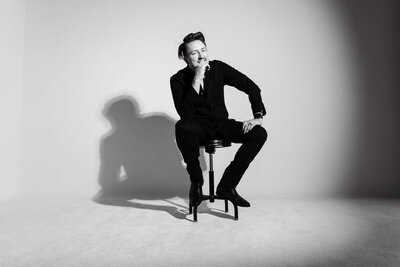

Browse by category
In the world of performance, the director gives “notes” which include specific, actionable tips for the performers.
Musings and dispatches about creativity, storytelling, and finding more meaning as a public speaker.
A podcast with storytellers, public speakers, and performers about the art and science of saying something.
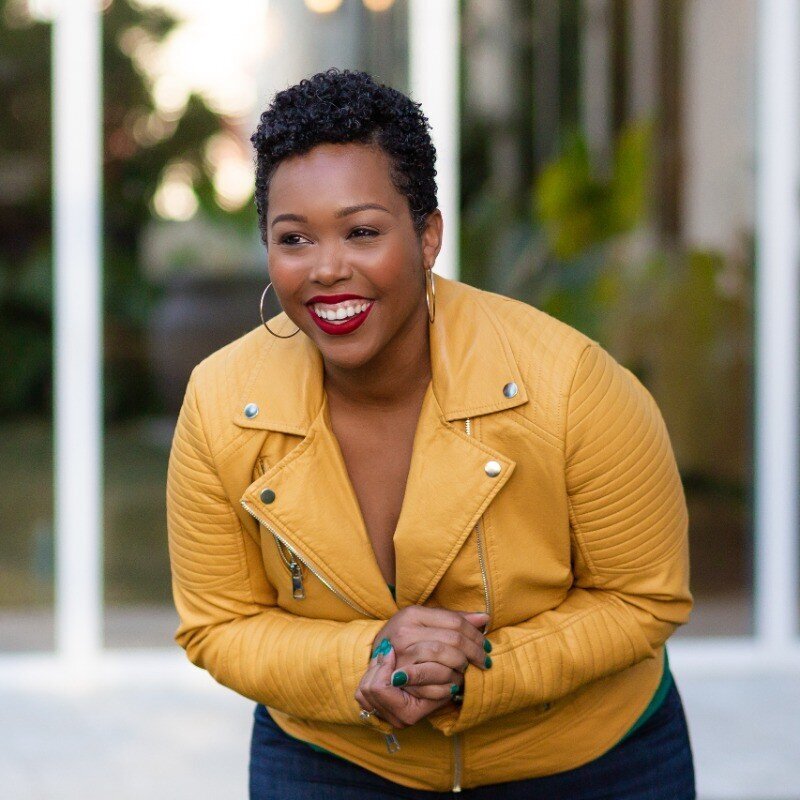



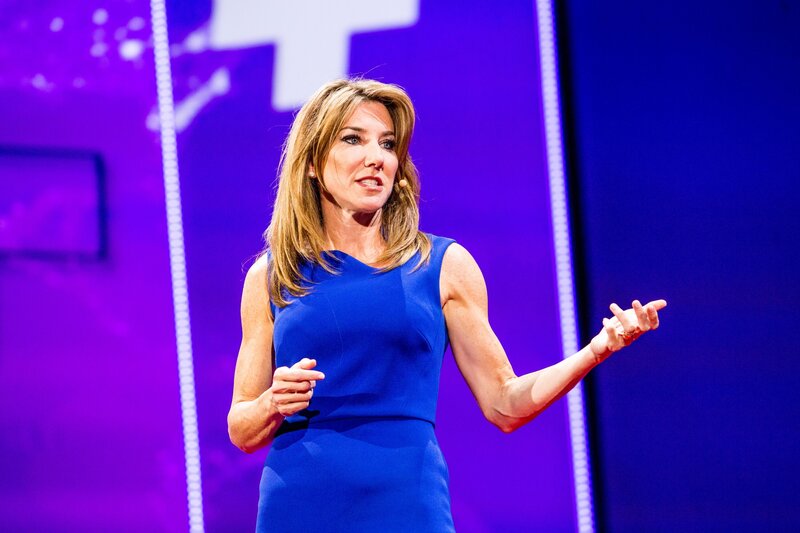



"Mike helped me create the signature keynote I'd been dreaming of giving. He was so skillful, artful, creative in helping me create a #mikedropmoment."




“He should have charged me 5x as much because the VALUE I received was so astounding!”
“Working with Mike made me more compelling, more motivational, more relatable, and more myself”
WORD ON THE STREET
— Erin King, Bestselling Author & Top-Ranked Keynote Speaker
— Tiffany Lanier, Change and wellbeing keynote speaker
— Laura Gassner Otting, bestselling author and TEDx speaker
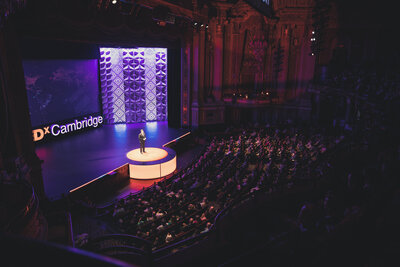

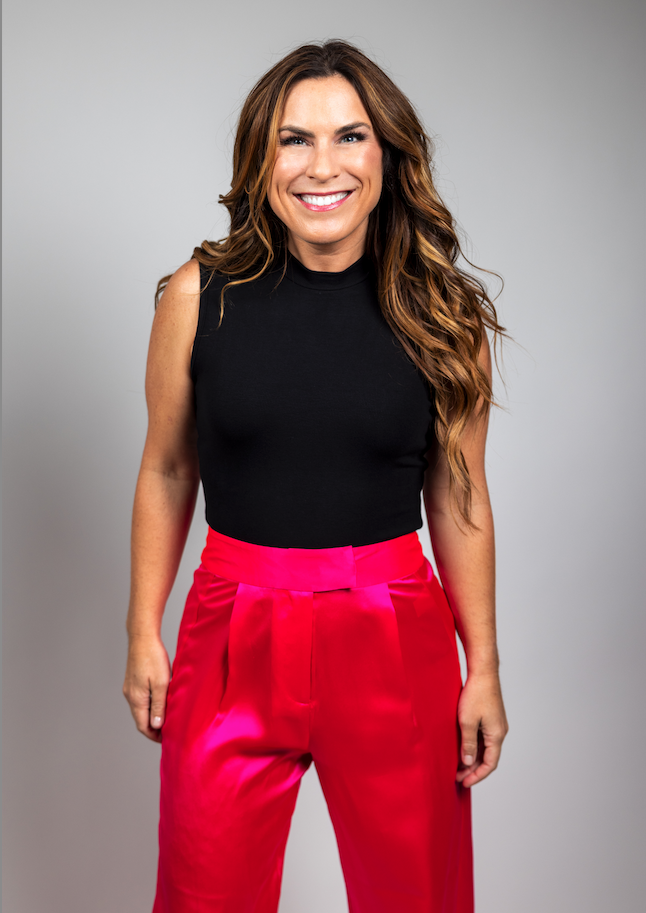


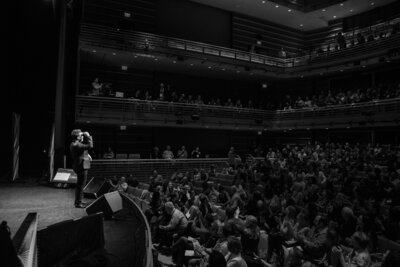

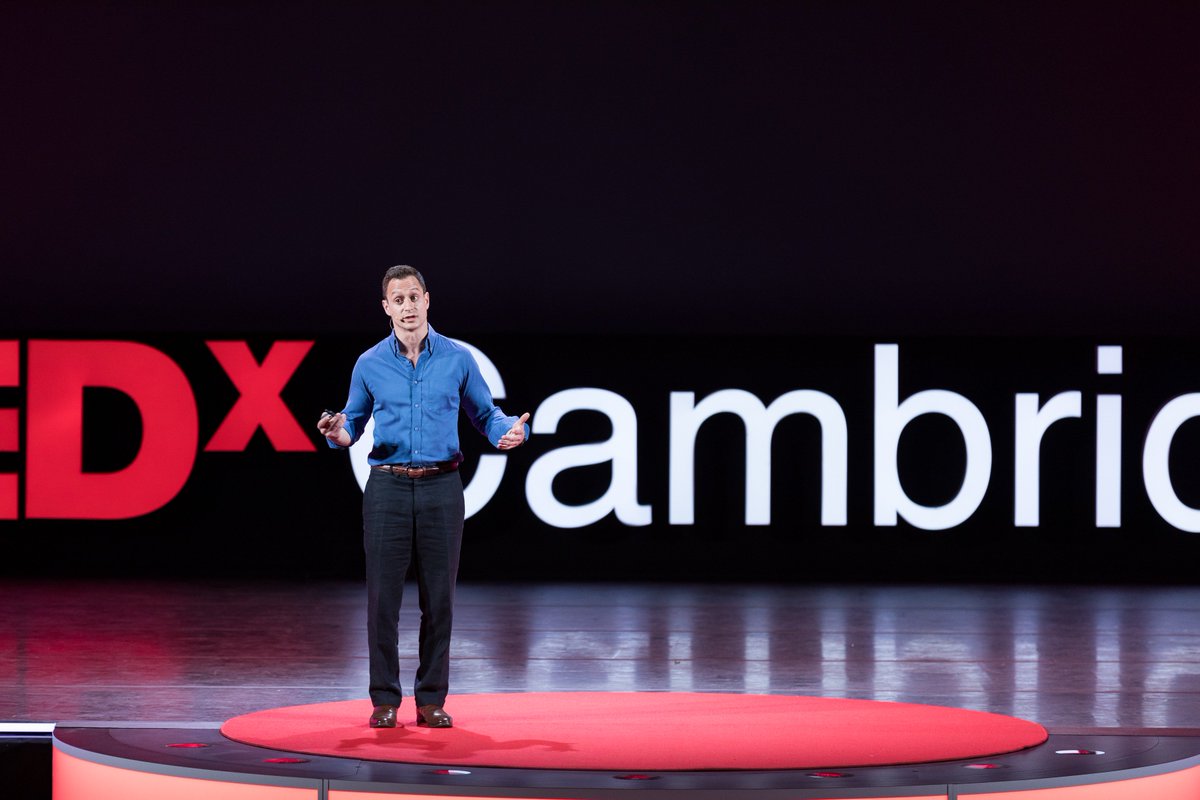
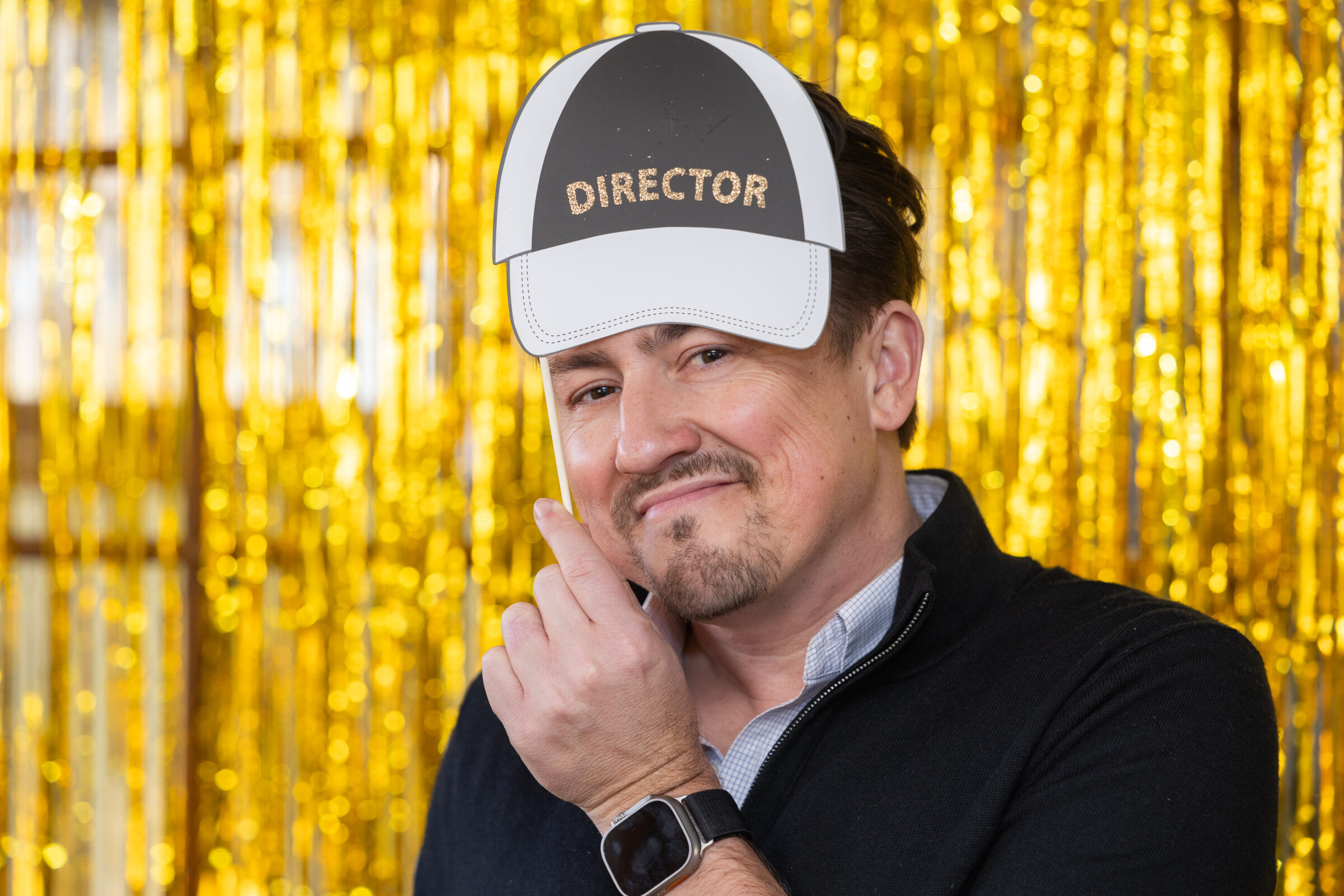
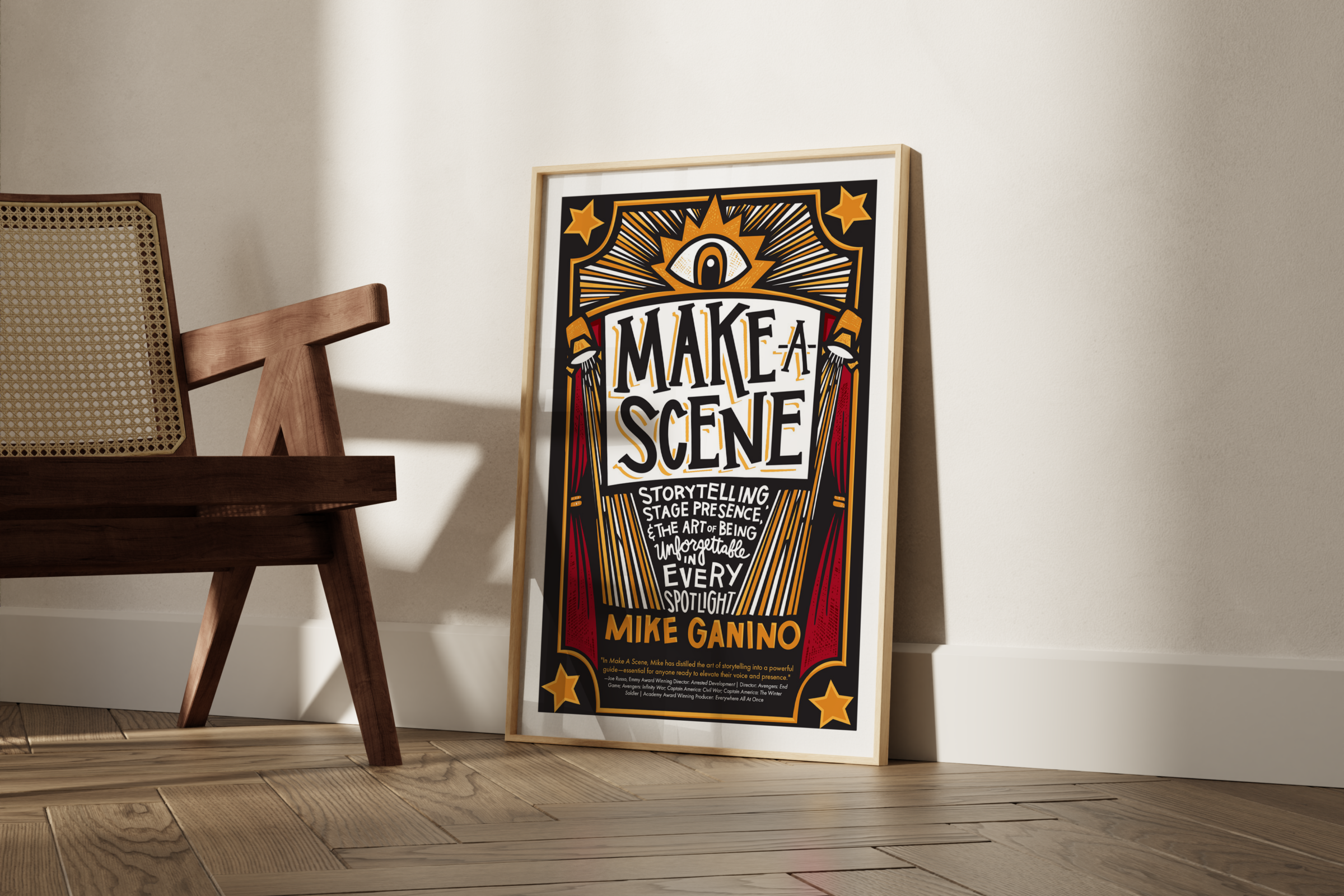
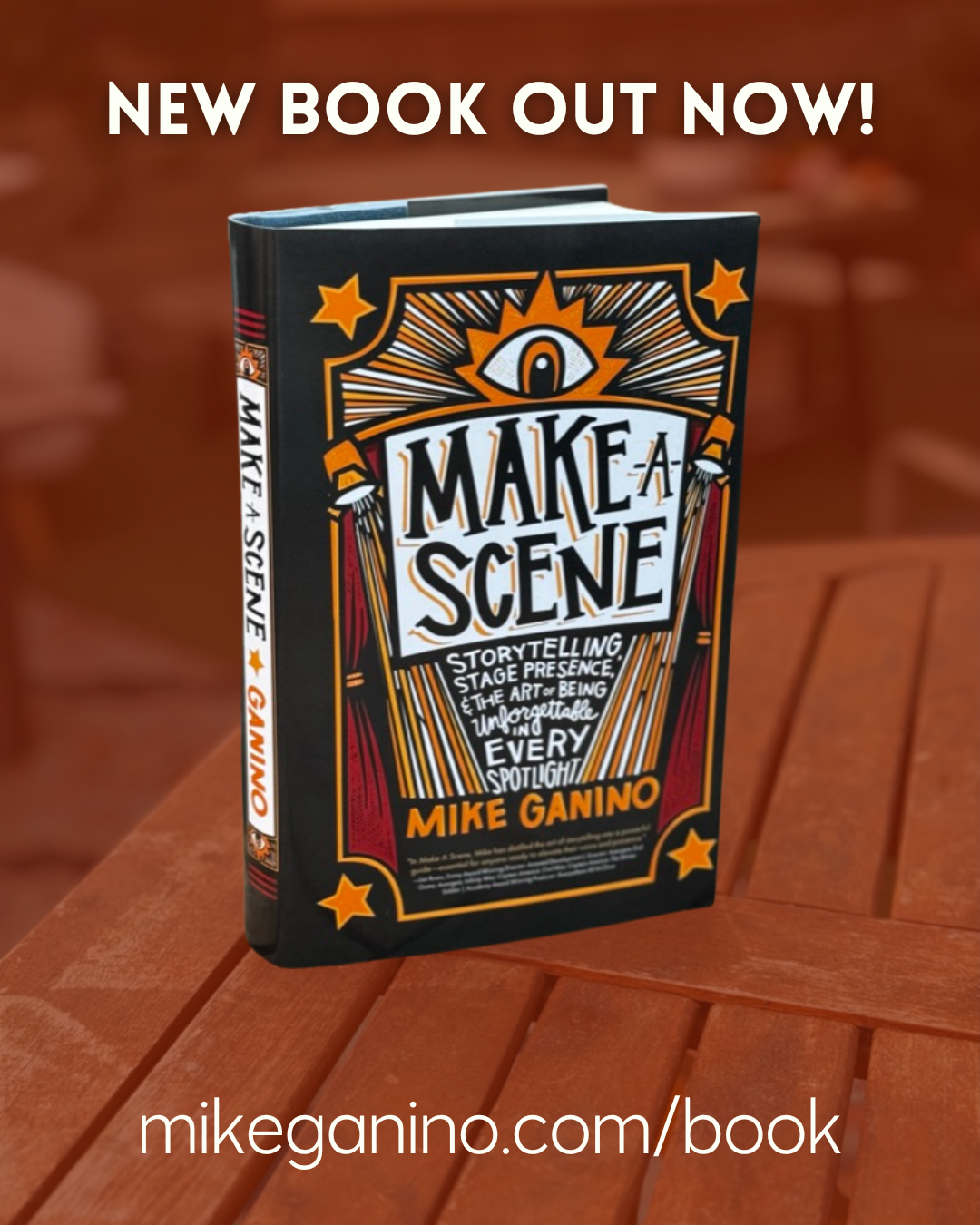
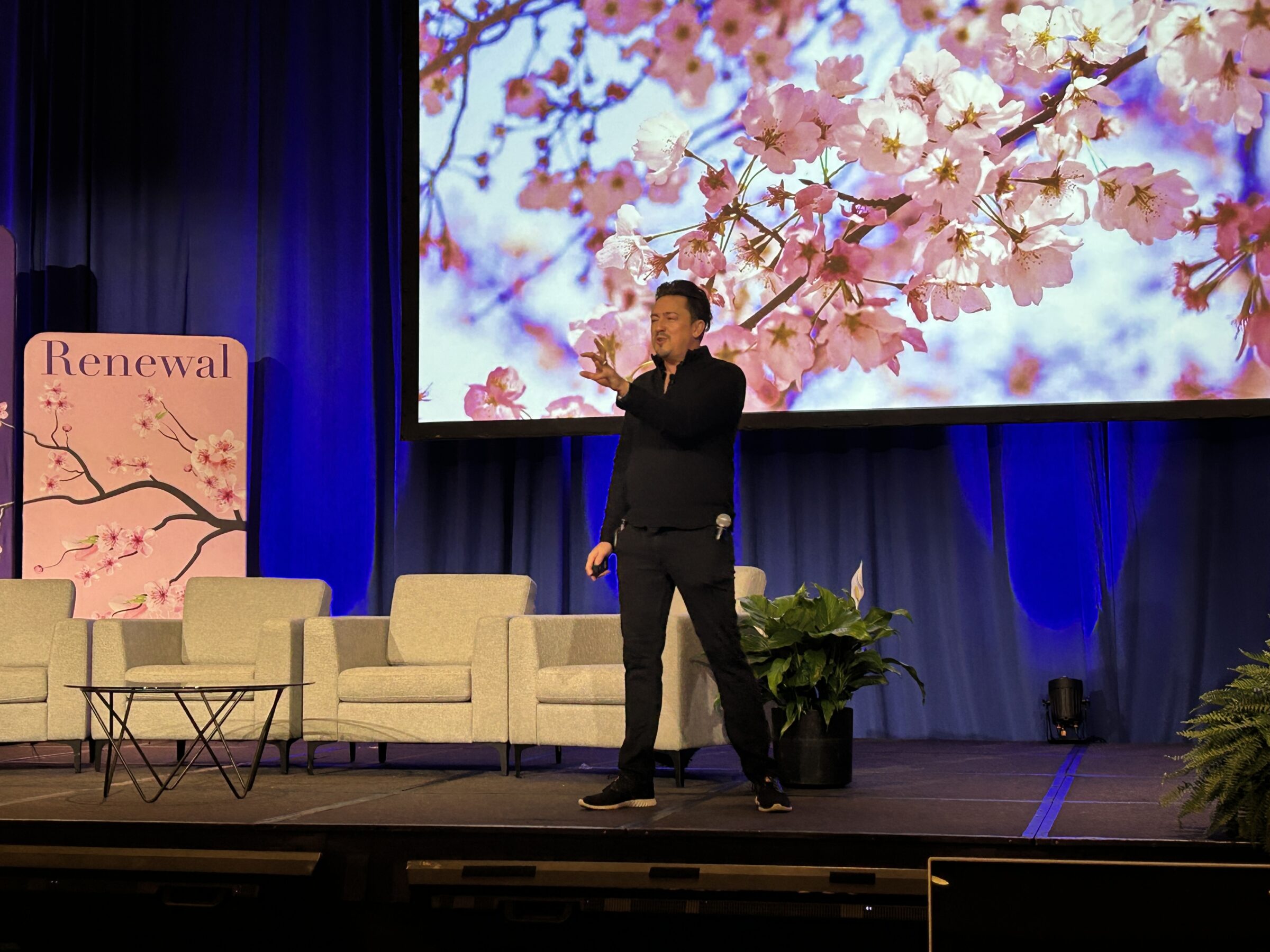



+ Show / Hide Comments
Share to: